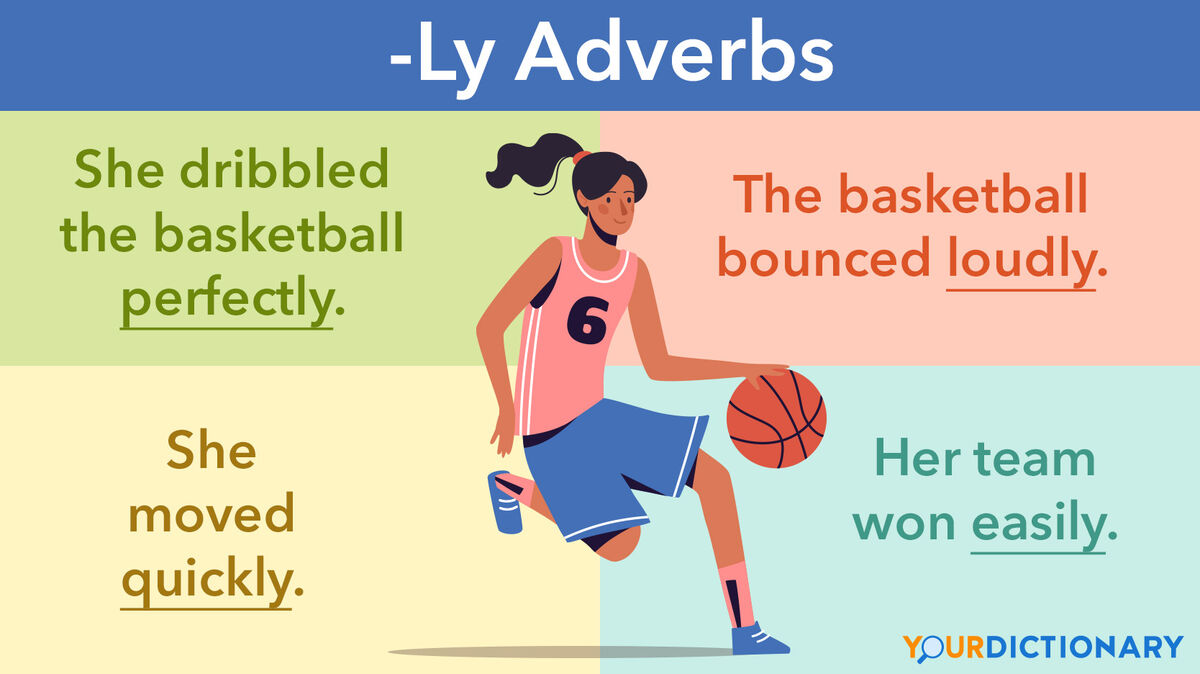
You have most likely encountered words that end in -ly, but you may not know why they take on this suffix. Many adverbs in the English language end with the suffix -ly, since this is a quick and easy way to turn an adjective into an adverb. For instance, the adjective "sad" transforms into the adverb "sadly" by adding -ly to the end. There are many -ly words in English that make the language more interesting and exciting.
What Is an Adverb?
In order to understand words that end in -ly, it is important to first understand what an adverb is and how to use one in a sentence. An adverb is the part of speech that describes, modifies or provides more information about a verb in a sentence. An adverb can also be used to modify or qualify adjectives, other adverbs or whole word groups.
The -ly suffix is an excellent way to describe how, or how often, something is done. While not a hard and fast rule, and there are certainly many exceptions, spotting the -ly ending in a word is oftentimes a good indicator that the word is an adverb. Many adverbs end in -ly, but not all of them do. Common adverbs that never end in -ly include "very" and "never."
Common -ly Adverbs
Because there are so many adverbs that end in -ly, this list is not entirely exhaustive. For even more examples of adverbs, be sure to read our list of 100 adverbs. Here are 60 examples of adverbs ending with -ly to get you started:
accidentally | accusingly | adamantly |
angrily | anxiously | argumentatively |
badly | beautifully | boldly |
bravely | breathlessly | carefully |
certainly | correctly | dangerously |
dutifully | eagerly | effortlessly |
evenly | eventually | finally |
foolishly | frequently | generally |
gladly | gracefully | greatly |
happily | highly | hungrily |
ironically | loudly | lovely |
lowly | massively | motionlessly |
mournfully | necessarily | normally |
painstakingly | partially | perfectly |
practically | pragmatically | promptly |
proudly | purposefully | quickly |
quietly | roughly | sadly |
separately | sharply | shortly |
slowly | smoothly | spitefully |
suddenly | thankfully | wrongly |
Adverbs With -ly in Sentences
One of the best ways to understand how adverbs work is to see them in action in some sample sentences.
She looked upon the creature inquisitively.
George has been lazily lounging around the house all day.
I'm afraid the knight was mortally wounded in battle.
Nervously, Alice turned the knob and opened the door.
And they lived merrily ever after.
The circumstances rapidly changed overnight.
As he turned sharply, the parcel flew out the window.
They embraced one another warmly.
Sara took her time, but she got there eventually.
The committee hastily organized the event for the weekend.
How to Use Adverbs Correctly
Exercise a watchful eye when you are using adverbs, as people often use them incorrectly, getting them confused with adjectives. A very common error that people make is to say "I ran to the store quick" or "he runs very quick." This is not the proper usage of the word "quick." In these sentences, "quick" is modifying "ran" and "runs." Those words are verbs, and need to be modified by an adverb, not an adjective. Therefore, the appropriate form of the word to use is "quickly."
Learn More About Adverbs
To learn more about adverbs, try out these adverb worksheets or test your knowledge with this quiz. You can also consult other resources if you want to strengthen your writing skills by using more adverbs. Adverbs and other intensifiers make language more colorful and exciting, as well as strengthen the message and importance of your speech and writing.